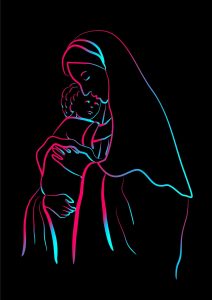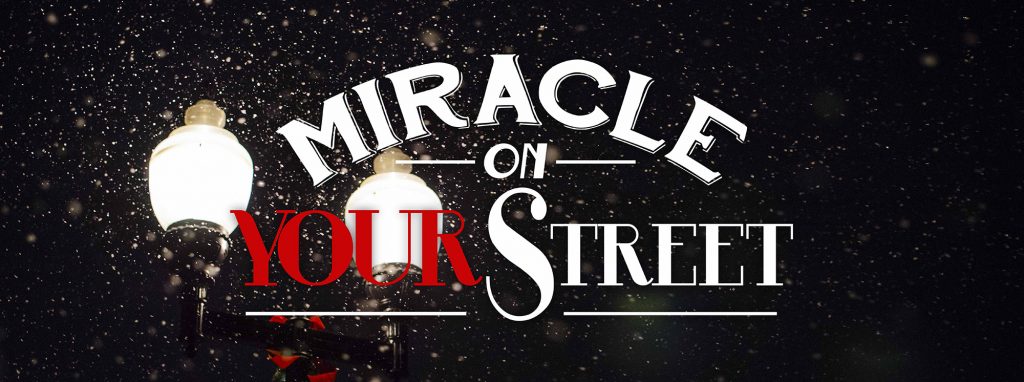WEEK FOUR: CHRISTMAS AND THE WORLD

Will you also be wise and follow the star?
Matthew 2:1-12
 Over these past weeks, hopefully, you have seen the Christmas story in a new light. In week one, we were reminded of Mary: her courage, her obedience, her confidence in God. She took Him at His word and was highly-favoured. There was something about Mary and we can learn much from her example. Next, we looked at the family of Mary and Joseph and how Joseph took on a child that wasn’t his own and how their example of a blended family is just as relevant to our world today.
Over these past weeks, hopefully, you have seen the Christmas story in a new light. In week one, we were reminded of Mary: her courage, her obedience, her confidence in God. She took Him at His word and was highly-favoured. There was something about Mary and we can learn much from her example. Next, we looked at the family of Mary and Joseph and how Joseph took on a child that wasn’t his own and how their example of a blended family is just as relevant to our world today.
Last week I brought to our attention to the shepherds, who were outcasts, rejects, but God thought them special enough to be the first people he told of the birth of his son. It amazes me that the God who created everything did not come with a silver spoon in his mouth demanding the privileges and glory of heaven; he came discreetly into a forgotten town, with an ordinary young mum and dad.
If you’ve been to any school or church nativity you’ll know that the shepherds arrive and then in the next breath, so do the wise men. There are three of them and they are on camels! The Bible only tells us that they were Magi that came from the east. There were probably more than three wise men and they actually arrived about two years after the birth of Jesus.
Imagine the scene – Jesus is now a toddler, walking around, learning to speak, and there is a knock at the door. Magi in all their splendour! What a sight! What’s going on? They wanted to see the God-child and bring him gifts and worship him.
The Greek word Magi covers magicians, fortune-tellers, priestly visionaries, and astrologers or astronomers. We’re not sure where they fell but they would be highly educated and rich.
 Very early in the Old Testament the Messiah is spoken of as a “star [that] shall come forth from Jacob” (Num. 24:17), and at the end of the New Testament He refers to Himself as “the bright morning star” (Rev. 22:16). It was surely the glory of God, blazing as if it were an extremely bright star – visible only to the eyes for whom it was intended – that appeared to the magi in the east and later guided them to Bethlehem.
Very early in the Old Testament the Messiah is spoken of as a “star [that] shall come forth from Jacob” (Num. 24:17), and at the end of the New Testament He refers to Himself as “the bright morning star” (Rev. 22:16). It was surely the glory of God, blazing as if it were an extremely bright star – visible only to the eyes for whom it was intended – that appeared to the magi in the east and later guided them to Bethlehem.
How did these eastern magic men know about the promises of a Jewish messiah? Could the Jewish traditions and teachings have been passed on and learned about through Daniel? However it happened, these men saw an unusual new star, studied what is meant and came to a logical conclusion that is was a sign of the long-awaited messiah to be King of the Jews.
It amazes me yet again that God speaks to men who are non-Jews and possibly accustomed to the occult and other forbidden practises. We see a God that goes beyond the normal. A new star would be wasted on most people, but it shows how God wants all to know him and goes to extreme lengths to point us to him, even creating new stars. He goes to us where we are at and speaks to eastern men in a language they understand. Let us not be so judgemental of those who have a different perspective to us. Let’s be the ones who – like God – seek to build bridges and understand cultures so that the gospel can be understood by all.
The magi, like the shepherds, had to go and find Jesus for themselves. They study the prophets, look through the stories of old. Their research points them to the conclusion that is must be the messiah, the new king of the Jews. So what do they decide to do? Go and find him. They saw his star in the east, there is no satnav or address so they travel to the obvious place of a new Jewish king…Jerusalem. It was in this finding that they came to faith, worshipped, praised God and believed.
The story unfolds.
Matthew 2:9-12 NIV
[9] After they had heard the king, they went on their way, and the star they had seen when it rose went ahead of them until it stopped over the place where the child was. [11] On coming to the house, they saw the child with his mother Mary, and they bowed down and worshiped him. Then they opened their treasures and presented him with gifts of gold, frankincense and myrrh.

- Worship is where we give value to something or someone. It is so much more than a song. It is a heart response, an expression of value and worth, in this case to God.
- We all worship even if you’re not a Christian. We worship our family, our possessions, our jobs, sport, even ourselves.
- I want to be a worshipper of God, a true seeker of God. This world lures us all to make idols of our things, our family, our careers but God desires to be number one.
- These men were true seekers of God, in whatever way it was that drew them on this amazing journey of discovery, they heard and they responded. Were they dissatisfied with life, with their traditions and customs?
- The Magi saw the star, they saw the light. They recognised Gods light…and putting everything else aside they went after him. Have you? If you have, is God in his rightful place?
The Christmas story shows us that God speaks to men and women, rich and poor, high class lower class. However, we are all guilty of having the tendency to push away thoughts of God and get on with life even if it is unfulfilling and empty. If we’re honest, we can relate fairly well to this famous American writer and philosopher Henry Thoreau who wrote, “Most people live their lives in quiet desperation.”
So we carry on, living and striving after the wind, all in the hope that things will turn out good. A pastor comments saying this:
A friend of mine, who is in the seven to eight digit yearly salary range, told me that my life was richer than his. I have nothing materially in comparison to him; yet, I have all that really matters to him. He realised that it has escaped his grasp. Nonetheless, he still goes on, chasing after the wind. He can’t stop the cycle. He has seen the star; but, he won’t follow it.
The Christmas story may seem ludicrous to most, too far-fetched, impossible, coincidence…but we cannot ignore it.
Is God shining his light at you this Christmas? If so, will you follow the star?

